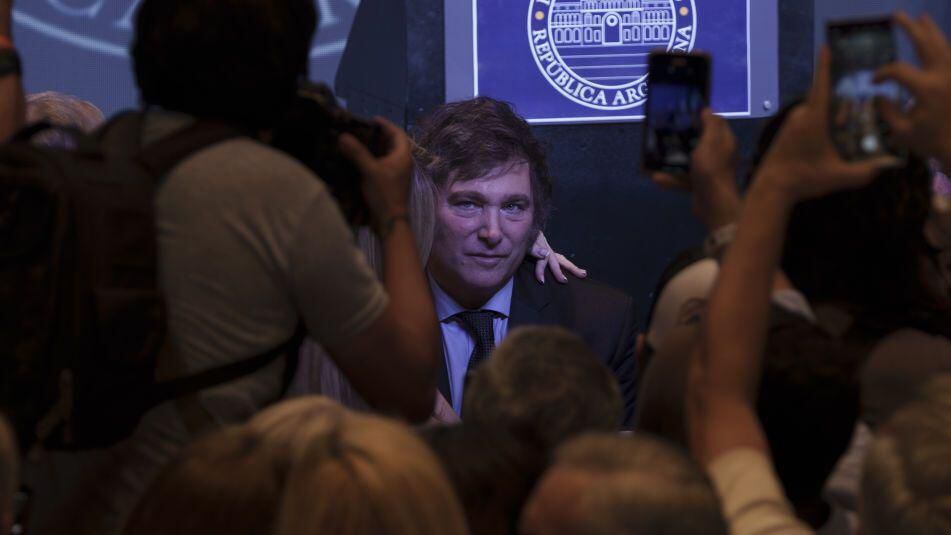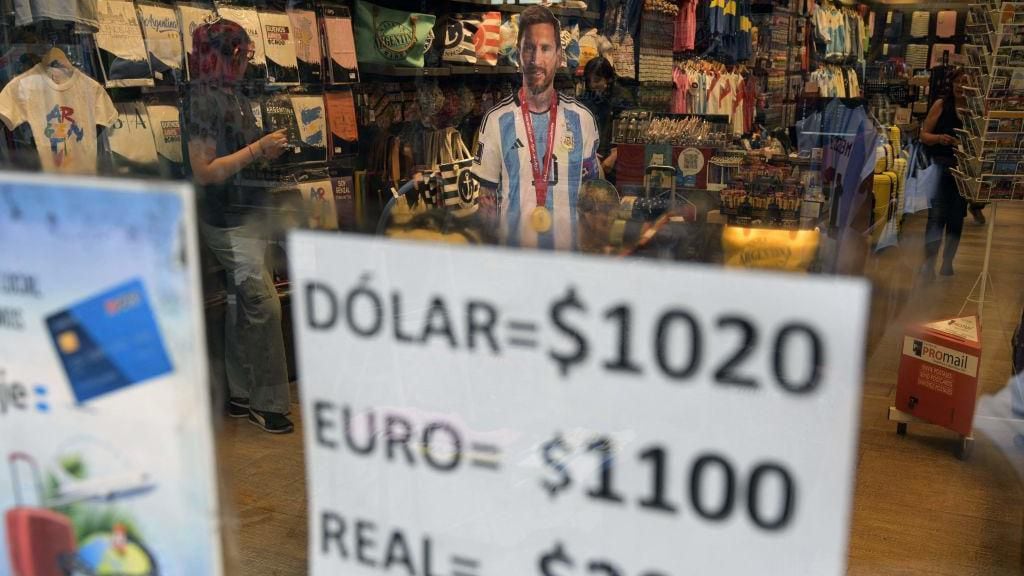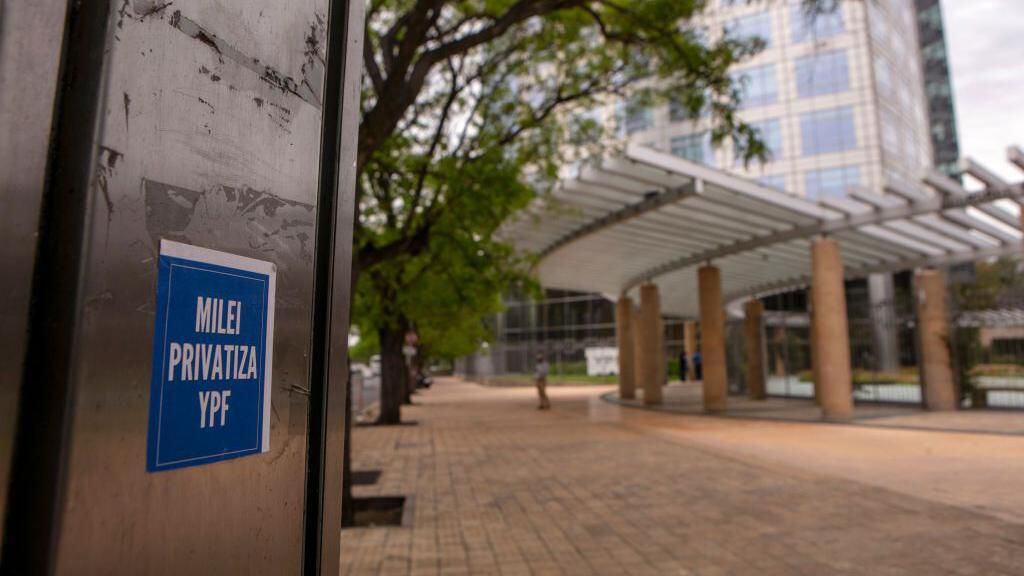Only a few nations in the world have given up on having a central bank among their institutions and almost all of them are, in fact, micro-countries: Kiribati, Tuvalu, Andorra, Marshall Islands, Isle of Man, Monaco, Nauru, Micronesia, Palau or the small Principality of Liechtenstein – in the heart of Europe – are some examples.
The only name on this list whose population is in the millions is Panama, which agrees with the rest to use a foreign currency as legal tender. In this case, the dollar.
LOOK: How they are similar and how they are different Milei, Trump and Bolsonaro
The proposal to Javier Mileithe elected president of Argentina who won Sunday’s elections with more than 55% of the votes, to “dynamit” the Central Bank of the Republic put on the table the issue of How does a country that doesn’t have this organization live?
The first thing a country loses without a central bank is having an individual sovereign monetary policy. In other words, it cannot set interest or exchange rates in relation to international currencies. It cannot print money or finance the State’s public spending.
The institution is also responsible for supervising commercial banks and payment methods, as it is responsible for regulating that the financial system is solid and reliable. And they also have the power to manage international reserves.
Your role is important because It affects the country’s finances and the value of the national currency.
Therefore, if a country decides to replace its national currency with a foreign currency –like Panama with the dollar or Monaco with the euro– the main powers of a central bank no longer make sense.
This means that a dollarized economy will depend on the decisions taken by the United States Federal Reserve and the one that works with the euro is subject to the European Central Bank.
The benefit to territories that borrow monetary policy from another currency is that eliminate exchange rate uncertainty Therefore, they export their products more easily to international markets.
“Being such small countries, International trade is very important for your economy. For them, the benefit of not having uncertainty in the exchange rate is much broader than any benefit of controlling the domestic economy through monetary policy”, said Omar Rachedi, professor in the Department of Economics, Finance and Accounting at Esade.
Essential tasks
But “even in dollarized countries, a control authority is still necessary, as in Panama. There is no official central bank, but there is a financial supervisory authority which is responsible for monitoring commercial banks and macroprudential regulations”, explains Eileen Gavin, analyst on the financial team at Verisk Maplecroft, to BBC Mundo.
Rachedi remembers that for an economy to continue functioning, there are tasks that someone has to continue performing.
“The central bank can do this or a body that replaces it such as the Ministry of Economy. “It is possible to eliminate the organism, but not eliminate all tasks,” he says.

And the aim of almost every central bank in the world is preserve the value of the currency itself and maintain a low level of inflation.
In general terms, it is an organization in charge of putting the brakes on an overheated economy when there is inflation, increasing interest rates, or reactivating the economy when it cools down, doing exactly the opposite: lowering rates. Low rates allow businesses and citizens to access credit to buy things.
It happened during the covid pandemic and The central banks of Mexico, Peru, Brazil and Chile have won international respect for the way it handled rising interest rates in anticipation of the problems that were to come.
They are considered professional and independent government institutionssomething that attracts foreign investors by generating confidence and stability.
International reserves
“If a country does not have a central bank, the supervisory body that replaces it has to guarantee the country’s liquidity and international reserves, which in a dollarization scheme is absolutely critical because this is how stability is guaranteed”, says Gavin .
“International reserves are really the last line of defense for an economy,” he says.
And those in Argentina are and have been on edge for years. Because to protect them, “central banks must be independent of the government, which often This doesn’t happen in Latin America“, believes the analyst.

“The central bank should not exist,” wrote Milei in a column in the prestigious weekly The Economist.
“Over the past 20 years, the country’s politicians and their puppeteers, who benefit from status quo, stole billions of dollars from Argentine workers through inflation. We estimate that, last year alone, politicians They stole more than 5% of the country’s GDP by devaluing the peso”.
Milei argues that the lack of independence of the central bank and its desire to print pesos to finance spending programs of successive governments was what drove up prices.
The institution is, in his opinion, to blame for the fact that Argentina ended the year with a expected inflation of 180%.
What cost 200 pesos at the beginning of 2023 will end the year with a supermarket price tag of 560.
Radical approach
“Eliminating the central bank is essential. There is no future for Argentina with the peso. “You already know where I stand in this epic fight,” says Milei in the article.
For many this is a radical approach to solving the country’s economic problems.
“Argentina is thinking about exporting its monetary authority from Buenos Aires to Washington, instead of thinking about how reform the law to make the central bank fully independent of politics”, says Rachedi.

What is clear is that if the economy of Argentina exchanges the peso for the dollar, The functions of the Central Bank of the Republic will change.
“One of its tasks will obviously no longer be issuing currency. What Milei wants to avoid is that the institution continue to finance the government’s fiscal deficits and continue to spend”, says Juan Carlos Martínez Lázaro, economist and professor at IE Business School at IE University.
The teacher compares what happens in Argentina with I have a euro printing machine in the basement of the house.
“You would have no problem spending as much as you want without any type of control. This is what somehow happens with the Argentine government. The central bank prints the pesos it wants and this allows us to maintain a level of spending that would otherwise be very complicated”, says Martínez Lázaro.
“But that only causes inflation and depreciation weight”, he adds.
Banned in many countries
This process, Technically called “deficit monetization” In economics, it is absolutely prohibited in most of the world’s central banks.
“One of the main functions, which is issuing money and therefore controlling the money supply, would largely disappear because the bank would no longer be able to issue pesos.”
“Without central bank, a country loses part of its monetary sovereigntyvery useful to face possible recessions or possible inflationary crises”, says Martínez Lázaro.

Milei proposed cutting public spending and dollarizing to contain galloping inflation.
“However, fiscal space is limited and a deep and prolonged recession to calm inflationwhich in October reached 142% compared to the previous year”, says Michael Langham, emerging markets analyst on the Global Macro Research team.
“To have any significant success, Argentina will need a painful recession and major reforms to improve its business environment and encourage foreign investors and national savers to reinvest in the country”, believes the analyst.
If dollarization finally occurs, the main problem will be exchange rate at which the national currency is converted into dollars Americans.
“A very weak conversion rate can destroy the population’s purchasing power, but a type of too strong a conversion can leave the economy uncompetitive in front of their business partners”, explains Thierry Larose, manager at Vontobel, to BBC Mundo.
For this reason, analysts agree that Milei’s plan to close the central bank and dollarize will not be in the short term and due to the size of its economy, You won’t be able to see how other smaller countries did it.
In Latin America, Ecuador dollarized its economy in 2000 without closing the central bank, an intermediate solution that had its own complications because reserves remained available for governments to continue financing themselves with these funds.
Time will tell whether Milei will finally move forward with his plans and whether the Argentine economy will be able to overcome all the challenges it faces.
Source: Elcomercio
I am Jack Morton and I work in 24 News Recorder. I mostly cover world news and I have also authored 24 news recorder. I find this work highly interesting and it allows me to keep up with current events happening around the world.

:quality(75)/cloudfront-us-east-1.images.arcpublishing.com/elcomercio/K3TASUGPVRHJXBN5NUIAQJKJKY.jpg)





